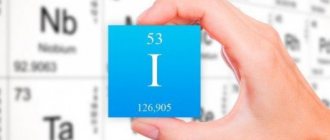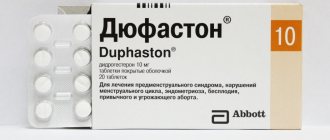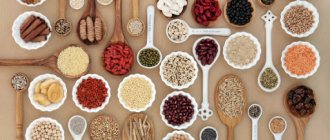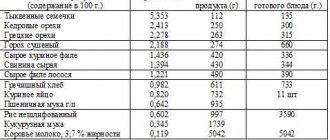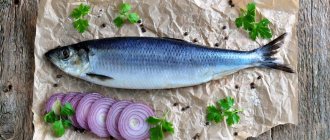Beneficial properties of iodine and its effect on the body
Did you know that iodine deficiency is currently considered by the World Health Organization (WHO) to be the most common and easily preventable cognitive impairment in children in the world? There are at least 30 million people suffering from this preventable disease.
Iodine is a trace element and an important component of the thyroid hormones, triiodothyronine (T3) and thyroxine (T4). These hormones regulate the metabolic activities of most cells and play a vital role in the early growth and development of most organs, especially the brain. Insufficient intake of iodine-rich foods can lead to insufficient production of these hormones, which negatively affects the muscles, heart, liver, kidneys and developing brain.
https://www.who.int/nutrition/topics/idd/en/
Iodine deficiency statistics speak for themselves
:
- The National Health Nutrition Examination Survey found that iodine levels have decreased by 50 percent over the past 30 years.
- More than 96 percent of the more than 5,000 patients studied were iodine deficient in a clinical study conducted by thyroid expert Dr. David Brownstein.
- According to WHO, iodine deficiency affects 72% of the world's population.
- In 2011, 70 percent of households worldwide had access to iodized salt.
https://www.who.int/bulletin/volumes/94/2/15-160036/en/
Iodine as a chemical element was discovered in France by Bernard Courtois at the beginning of the 19th century. In the periodic system of Mendeleev, it is designated by the letter “I” and assigned atomic number 53. In its pure form, under normal conditions, iodine is represented by crystals with a color ranging from dark gray to blue. It is poorly soluble in water; organic solvents are used for its solutions, in which iodine acquires a rich brown or purple color. It is not surprising that the name “iodine” itself translated from Greek means purple or violet. Iodine is not found in isolated deposits in nature, but is distributed everywhere in small quantities. To extract iodine, its compounds, salts rich in iodine, are used, from where it is isolated chemically. The human body is not able to synthesize iodine on its own, so it must come from the environment with food and water.
Iodine is a truly essential micronutrient in our diet and plays an important role in normal growth and development. Unfortunately, iodine deficiency is a serious public health problem worldwide. It affects 2 billion people worldwide and its prevalence is increasing, especially among teenage girls and pregnant women.
https://pubmed.ncbi.nlm.nih.gov/18053280/
Iodine is especially important for the functioning of the thyroid gland, as it is involved in the synthesis of two thyroid hormones, T3 and T4. They play an important role in regulating metabolism, growth and development, and the development of the central nervous system and brain in fetuses and children.
https://www.ncbi.nlm.nih.gov/pmc/articles/PMC3119440/, https://pubmed.ncbi.nlm.nih.gov/18053280/
Consuming dietary iodine is essential for the production of thyroid hormone. The consequences of iodine deficiency include
:
- goiter;
- intellectual disabilities;
- growth retardation;
- neonatal hypothyroidism;
- and increased risks of miscarriage and infant mortality.
In 1990, the United Nations World Meeting set the goal of eliminating iodine deficiency worldwide. Since then, significant progress has been made, mainly due to universal salt iodization programs. Approximately 70% of all households worldwide now have access to iodized salt.
In 2013, according to national or subnational median urinary iodine concentrations of 100–299 µg/L in school-age children, 111 countries have adequate iodine intake. Thirty countries remain iodine deficient. Ten countries have excess iodine consumption.
Therefore, despite significant progress made over the past few decades, iodine deficiency remains a serious health problem worldwide, affecting both industrialized and developing countries. Ongoing monitoring of the population's iodine status remains critical, and special attention needs to be paid to monitoring the status of vulnerable populations such as pregnant women and infants. There is also a need for continuous monitoring of iodized salt and other sources of dietary iodine to prevent over-as well as under-nutrition of iodine.
Iodine is present throughout the body in almost every organ and tissue and is needed by virtually every body system to keep us alive and energized. For this reason, iodine deficiency poses many health risks. This is why it is so important to regularly include iodine-rich foods in your diet.
We recommend
“Water in food: effects on the body, weight loss” Read more
Iodine is a truly essential mineral that is supplied to the body through iodine-rich foods, including certain salts (“iodized salt”), eggs, sea vegetables, fish, legumes and other foods. It occurs naturally in mineral-rich soils as well as in ocean water.
Iodine present in foods and iodized salt contains several chemical forms of iodine, including sodium and potassium salts, inorganic iodine (I2), iodate, and iodide.
As we've already discussed, iodine is needed to create thyroxine (T4 hormone) and triiodothyronine (T3), the two main hormones produced by the thyroid gland that control many important functions in the body.
Health Benefits of Iodine
- Supports Thyroid Health
The thyroid gland must have high enough levels of iodine to produce key hormones, including thyroxine. Thyroid hormones regulate many important biochemical reactions every day. Some of the most important include
:
- synthesis of amino acids from proteins,
- activity of digestive enzymes,
- proper development of the skeleton and central nervous system.
- May help prevent cancer
Iodine can improve immunity and help induce apoptosis - the self-destruction of dangerous cancer cells. Although it can help destroy mutated cancer cells, it does not destroy healthy cells in the process.
For example, evidence suggests the ability of iodine-rich seaweeds to suppress the development of certain types of breast tumors. This is supported by the relatively low rates of breast cancer in parts of the world such as Japan, where women consume a diet high in seaweed.
We recommend
“Healthy food: delicious and healthy recipes for every day, the basics of proper nutrition” Read more
Certain types of iodine therapy are also sometimes used to treat thyroid cancer.
- Supports the growth and development of children.
Iodine is especially important in the early stages of development, as fetal brain tissue and thyroid receptors are extremely dependent on this mineral for their normal formation.
Research shows that iodine deficiency during pregnancy and infancy can impair healthy growth and brain development. Infants with iodine deficiency are more likely to die and have a higher risk of neurodegenerative problems such as cretinism, low growth rate, motor problems and learning disabilities.
Although doctors routinely test women during pregnancy for iodine deficiency, it is difficult to get an accurate reading of iodine levels. As such, many health experts are now urging women to increase their intake of iodine-containing foods in their diet during pregnancy and supplement with iodine as needed. Considering how common iodine deficiency is, this recommendation should really be taken seriously.
Study
: Iodine as Essential Nutrient during the First 1000 Days of Life, Iodine, Iodine metabolism and Iodine deficiency disorders revisited, Iodine supplementation for preventing iodine deficiency disorders in children
- Supports Healthy Brain Function
Research shows that iodine plays a role in healthy brain development and ongoing cognitive abilities - which is why iodine deficiency is one of the most common preventable causes of mental disorders in the world, as well as neurodegenerative disorders, according to experts.
Study
: The disorders induced by iodine deficiency, Iodine consumption and cognitive performance: Confirmation of adequate consumption
- Keeps skin healthy and fights infections.
One common sign of iodine deficiency is dry, rough and irritated skin that becomes flaky and inflamed. This mineral also helps regulate sweating, so people may experience changes in how much they sweat if their iodine levels become unbalanced.
Another benefit: Iodine can potentially help treat minor infections, such as those that form in scratches, as it has natural antibacterial properties.
- Helps control sweating and body temperature.
Sweating is an important detoxification method that the body uses to remove toxins. Iodine deficiency can disrupt this natural way we remove waste from the body through our pores and control our body temperature.
Similar to the ability to produce sufficient sweat, iodine deficiency can also cause dry mouth due to abnormally low saliva production. This makes it difficult to enjoy food and may impair digestion to some extent.
Study
: Denis Wilson, md: Low Body Temperature as an Indicator for Poor Expression of Thyroid Hormone, Salivary Gland Function 5 Years After Radioactive Iodine Ablation in Patients with Differentiated Thyroid Cancer: Direct Comparison of Pre- and Postablation Scintigraphies and Their Relation to Xerostomia Symptoms
When thyroid disorders such as hypothyroidism occur due to a diet low in iodine, symptoms can range from decreased metabolism to heart complications, changes in appetite and body temperature, changes in thirst levels and sweating, weight fluctuations and mood changes.
Additionally, getting enough of this mineral is also important to prevent goiter or enlarged thyroid gland.
Iodine requirement per day
For people over 12 years of age, the recommended iodine requirement is 150 mcg per day.
For pregnant and lactating women, the recommended iodine requirement is 150-250 mcg per day. This increase during pregnancy and breastfeeding should help increase the production of thyroid hormones in the fetus or baby, counterbalance any potential losses from the mother, and supply the fetus with iodine so that it can produce its own thyroid hormones.
https://www.who.int/nutrition/publications/micronutrients/iodine_deficiency/9789241595827/en/
Iodine deficiency diseases of the thyroid gland
Most often, iodine deficiency in the body is manifested by the development of diffuse euthyroid goiter - a uniform enlargement (hyperplasia) of the thyroid gland. Diffuse goiter occurs as a compensatory mechanism that ensures sufficient synthesis of thyroid hormones in conditions of iodine deficiency.
Diffuse goiter that develops in people living in areas with iodine deficiency is called endemic, and in areas with sufficient iodine content it is called sporadic. According to WHO criteria, if more than 10% of the population of a region suffers from diffuse hyperplasia of the thyroid gland, then this region is recognized as endemic for goiter. Much less often, the development of endemic goiter is associated not with iodine deficiency, but with the action of chemical compounds: thiocyanates, flavonoids, etc. Today, endocrinology does not have accurate data on the mechanism of occurrence of sporadic goiter. This issue has been little studied. It is believed that in most cases, sporadic goiter is associated with congenital disorders of the enzymatic systems that synthesize thyroid hormones.
The second most common iodine deficiency disease of the thyroid gland among the adult population is nodular goiter - uneven, nodular hyperplasia of the thyroid gland. In the early stages, nodular goiter does not lead to dysfunction of the thyroid gland, but when taking iodine preparations it can cause the development of thyrotoxicosis. An extreme degree of iodine deficiency manifests itself in the form of hypothyroidism, caused by a sharp decrease in the level of thyroid hormones in the body.
The most vulnerable category of the population due to iodine deficiency are pregnant women and children. Iodine deficiency experienced during pregnancy is especially dangerous, since this condition affects the thyroid glands of the mother and fetus. With iodine deficiency diseases of the thyroid gland in pregnant women, the risk of spontaneous miscarriages, congenital malformations of the fetus increases, and in born children - the development of hypothyroidism and mental disability.
In the fetus, the production of its own T4 hormone by the thyroid gland begins at 16-18 weeks. intrauterine development, whereas before this period the development of all systems is carried out through the use of maternal thyroid hormones. Therefore, already in the first trimester, the secretion of T4 in a pregnant woman increases by almost 40%.
In case of severe iodine deficiency and a decrease in a woman’s T4 level already at the time of pregnancy, the deficiency of thyroid-stimulating hormones during fetal development is so pronounced that it leads to severe consequences for the child and the occurrence of neurological cretinism - an extreme degree of mental and physical retardation associated with intrauterine iodine deficiency and a lack of thyroid hormones.
Mild iodine deficiency, easily compensated in the absence of pregnancy and not leading to a decrease in the level of thyroid hormones, but manifested by a decrease in T4 production during pregnancy, is regarded as relative gestational hypothyroxinemia syndrome. Hypotyroxinemia that develops during pregnancy can lead to intellectual development disorders that do not reach a severe degree of oligophrenia.
Foods High in Iodine
Surely, you are wondering how to increase your iodine level? The best way to maintain normal iodine status is to eat foods high in iodine.
Seaweeds are one of the best dietary sources of iodine, but their iodine content is highly variable. Examples include arame, kombu, wakame, kelp, and hijiki. Kelp contains the highest amount of iodine of any food in the world.
Other good sources of iodine include
:
- seafood;
- dairy products (usually due to the use of iodine feed additives and iodoform disinfectants in the dairy industry);
- eggs.
The iodine content of vegetables and fruits varies depending on the iodine content of the soil, irrigation methods and fertilizers used. The iodine concentration in plants can vary from 10 µg/kg to 1 mg/kg dry weight. This variability affects the iodine content of animal products and meats because it affects the iodine content of the foods that animals consume.
https://ods.od.nih.gov/factsheets/Iodine-HealthProfessional/#en5
| Product | Iodine content per 100 g of product, (in mcg) | Daily requirement (%) |
| Sea kale | 300 | 200 |
| Squid | 200 | 133 |
| Cod | 135 | 90 |
| Shrimp | 110 | 73 |
| Egg powder | 64 | 43 |
| Sea bass | 60 | 40 |
| Low-fat dry milk | 55 | 37 |
| Vobla | 50 | 33 |
| Pink salmon | 50 | 33 |
| Flounder | 50 | 33 |
| Chum salmon | 50 | 33 |
| Atlantic salmon | 50 | 33 |
| Tuna | 50 | 33 |
| Turkey breast (baked) | 35 | 23 |
Products low in iodine
Some thyroid diseases require an iodine-free diet. This means you need to select products that either do not contain this element at all or contain it in minimal quantities.
Products that do not contain iodine
:
| Fruits (fresh) | Bananas, grapefruits, oranges, tangerines, seedless apples, pears, currants |
| Vegetables raw, freshly prepared, frozen (no salt) | Everything except potatoes with skins, soybeans, beans: variegated, lima, navy, red, wingu |
| Nuts (no salt) | Peanuts, almonds, nut butter (no salt) |
| Seasonings | Dried and raw herbs, as well as black pepper |
| Beverages | All types of coffee, tea, beer, wine and other alcoholic beverages |
| Egg whites, as well as products of its processing | Protein omelet, meringue, meringue, etc. |
| Vegetable oils | All |
| Juices (freshly squeezed) | All except maraschino cherry and rhubarb pressed |
Products poor in iodine
:
| Product type | Product | Iodine content in products, mcg per 100 g of product |
| Fresh meat | Pork | 3-16 |
| Beef | 3-7 | |
| Chicken | 6 | |
| Veal | 3 | |
| Beef liver | 6 | |
| Cereals | Wheat flour | To 10 |
| Buckwheat | 3,5 | |
| Vegetables | Beet | 6,8 |
| cucumbers | 3-8 | |
| Carrot | 6,8 | |
| Cabbage | 6,5 | |
| Potatoes without skin | 3-5 | |
| Tomato | 6 | |
| Fruits | Apples, pears, peaches, apricots, plums, citrus fruits | 2 |
Symptoms, causes and consequences of iodine deficiency
It is estimated that around 2 billion people worldwide suffer from insufficient iodine intake, although many are unaware of this because they do not notice obvious symptoms. The populations of South Asia and sub-Saharan Africa are particularly affected by this problem. In the US and Europe, shortages are believed to be growing.
Common signs of iodine deficiency include:
- Problems with saliva production and proper digestion of food
- Swollen salivary glands and dry mouth
- Skin problems, including dry skin
- Poor concentration and difficulty remembering information
- Muscle pain and weakness
- Increased risk of developing thyroid disease
- Increased risk of developing fibrosis and fibromyalgia
- Higher risk of developing problems in infants and children
Clinical signs and symptoms of iodine deficiency:
- Depression
- Difficulty losing weight
- Dry skin
- Headache
- Lethargy or fatigue
- Memory problems
- Menstrual problems
- Hyperlipidemia
- Recurrent infections
- Sensitivity to cold
- Cold hands and feet
- Brain fog
- Thinning hair
- Constipation
- Dyspnea
- Renal dysfunction
- Muscle weakness and joint stiffness
*According to The Clinician's Handbook of Natural Medicine.
Although excess iodine is a potential risk for thyroid dysfunction, it is much less common and is considered a relatively minor risk compared to the significant risks of deficiency. In addition, consuming very large doses of iodine from foods on its own is very unlikely.
Due to the high prevalence of iodine deficiency throughout the world, and the resulting serious health problems, there is much more emphasis in the medical community on adding more of this mineral to a person's diet than on worrying about reducing it.
Why are more and more people experiencing iodine deficiency?
There are several reasons
:
- Reducing iodine intake from food.
Unlike nutrients such as calcium, iron or vitamins, iodine is not found naturally in certain foods; rather, it is present in the soil and absorbed through foods grown in that soil.
Iodine is obtained primarily through diet, but it can also be obtained from supplements. Higher levels of exposure to certain chemicals found in processed foods unfortunately reduce iodine absorption.
We recommend
“Vitamins for colds: why take them and their benefits for the body” Read more
For example, bromine, found in many commercially packaged foods, has been reported by researchers to affect the absorption of iodine from foods to varying degrees. Bromine can displace iodine and can lead to higher rates of iodine deficiency.
- Depletion of iodine contained in soils.
When it comes to soil depletion, research indicates that soils around the world contain varying amounts of iodine, which in turn affects the amount of this mineral in crops. In some areas, soils deficient in minerals are more common, making people more likely to develop deficiencies.
Efforts to reduce deficiency, known as “salt iodization programs,” are helping to reduce deficiency levels in some parts of the poor world where there are high rates of negative health effects. But the surest way to prevent deficiency (and the safest) is to increase your intake of iodine-rich foods.
Risk factors for iodine deficiency
- Selenium deficiency
Iodine deficiency combined with selenium deficiency can lead to thyroid imbalance. One of the most serious manifestations of thyroid imbalance is goiter. Research has shown that many people diagnosed with iodine deficiency also have selenium deficiency. The thyroid gland needs both selenium and iodine to produce adequate levels of hormones, but when there is a deficiency of one or both, it results in low thyroid hormone levels. This is why adequate levels of iodine are necessary for adequate thyroid function.
Iodine is known to play a vital role in thyroid health, while selenium is critical for iodine utilization. When selenium levels are low, the thyroid gland will work harder to produce thyroid hormones, and the body will have difficulty changing these hormones into forms used by cells. Therefore, it is important to correct both of these deficiencies to restore thyroid health.
- Pregnancy
About a third of pregnant women in the United States are iodine deficient, according to the journal Pediatrics. Currently, only 15 percent of breastfeeding and pregnant women take iodine supplements.
Additional iodine is usually in the form of sodium or potassium iodide. Severe iodine deficiency is associated with delayed mental and physical growth, and even mild iodine deficiency can impair brain function in infants. The supplement must include at least 150 mcg of iodide and use iodized table salt. Combined supplement and food intake should range from 290 to 1,100 micrograms per day.
https://www.webmd.com/vitamins/ai/ingredientmono-35/iodine
- Tobacco smoke
Tobacco smoke contains a compound called thiocyanate. The inhibitory effect of thiocyanate on iodide uptake occurs through competitive inhibition of the iodide transport mechanism and may be responsible for the reduction in iodide levels. Other substances in tobacco smoke that can interfere with thyroid function include metabolites of hydroxypyridine, nicotine, and benzopyrenes. Tobacco smoke not only affects thyroid function, but can also block the action of thyroid hormones.
https://pubmed.ncbi.nlm.nih.gov/7833671/
- Fluoridated and chlorinated water
Tap water contains fluoride and chlorine, which inhibit iodine absorption. In the study, researchers used the Wechsler Intelligence Test to determine the IQ of a total of 329 children aged eight to 14 living in nine high-fluoride, low-iodine villages and seven low-iodine villages. As it turned out, the IQ of children from high-fluoridated, low-iodine villages was lower than that of children from low-iodine villages.
- Goitrogens
Eating raw cruciferous vegetables (cauliflower, broccoli, cabbage, Brussels sprouts) can affect thyroid function as they contain goitrogens, substances that suppress the thyroid gland by interfering with the production of hormones. People with iodine deficiency are at risk when consuming these foods.
https://pubmed.ncbi.nlm.nih.gov/8675242/
We recommend
“Vitamins for vigor: how to take them correctly and their daily dosage” Read more
Iodine supplements and dosages
Low iodine status and low-iodine diets are associated with an increased risk of thyroid disease, but there are also potential thyroid and hormonal risks associated with taking too much iodine, especially from supplements containing it in the iodide form.
Recommended daily dose:
Iodine recommendations are given in terms of “Dietary Reference Intake” (Dri). DRIs were developed by the Food and Nutrition Board of the Institute of Medicine of the National Academies as a set of values used to plan and estimate nutrient intakes of healthy individuals.
According to the USDA, the recommended amount of iodine varies by age and gender as follows:
:
- Birth to 6 months: 110 mcg
- 7-12 months: 130 mcg
- 1-8 years: 90 mcg
- 9-13 years: 120 mcg
- 14 years and older: 150 mcg
- Pregnant women: 220 mcg
- Breastfeeding women: 290 mcg
What is the best way to reach these recommended values? By eating more iodine-rich foods, especially those that naturally contain the mineral and are not fortified with vitamins.
Signs of iodine deficiency in a woman’s body
Swelling in the neck area
Swelling in the front of the neck is the most common symptom of iodine deficiency. This is called a goiter and occurs when the thyroid gland becomes too large.
The thyroid gland is located under the chin on the front of the neck. It consists of two halves connected by an isthmus, and is very reminiscent of a butterfly that has opened its wings. The importance of this organ cannot be underestimated, since it is responsible for the production and accumulation of hormones containing iodine, without which regulation of metabolism is impossible. These hormones are responsible for the functioning of the respiratory, cardiovascular and immune systems. Since even a slight deviation in the development of the thyroid gland can seriously affect your health, you need to be careful about its condition.
When TSH levels rise, the thyroid gland uses iodine to create thyroid hormones. However, when there is a lack of iodine in a woman’s body, the thyroid gland does not have enough resources to produce enough hormones.
To compensate for this deficiency, the thyroid gland begins to work harder, trying to produce the maximum possible amount of hormones. This causes the cells to grow and multiply, eventually leading to a goiter.
Fortunately, in most cases, goiters can be successfully treated by increasing your iodine intake. However, if left untreated for many years, a goiter can lead to permanent damage to the thyroid gland.
Related articles:
- Lack of vitamins and minerals - 7 most...
- Diet for AIT (Hashimoto's disease)
Swelling in the front of the neck, or goiter, is a common symptom of iodine deficiency. This occurs when your thyroid gland is forced to produce thyroid hormones due to iodine deficiency in the body.
Unexpected weight gain
If your weight begins to grow rapidly, this may be another sign of iodine deficiency in a woman’s body.
As mentioned, thyroid hormones help control your metabolic rate, which is the process by which your body converts food into energy and heat.
When thyroid hormone levels are low, your body burns fewer calories at rest. This means that most of the calories consumed in food are converted into fat deposits.
Adding more iodine to your diet can help reverse the effects of a slow metabolism as it can help your body produce enough thyroid hormone.
Low iodine levels can slow down your metabolism, leading to body fat and weight gain.
Fatigue and weakness
Common symptoms of iodine deficiency in the female body are fatigue and weakness.
Some studies have shown that nearly 80% of people with low thyroid hormone levels, which occurs in cases of iodine deficiency, feel tired, sluggish and weak.
These symptoms occur because thyroid hormones help the body produce energy.
When thyroid hormone levels are low, the body cannot produce as much energy as usual. This can cause your vital energy and strength to weaken.
A study of 2,456 people found that fatigue and weakness were the most common symptoms among people with low or slightly below normal thyroid hormone levels.
Lack of iodine can cause fatigue, lethargy and weakness. This is because iodine is a source for energy production in your body.
Hair loss
A common problem among women, hair loss, can be caused by a lack of iodine in the body. The symptom is explained by the fact that thyroid hormones help control the growth of hair follicles. And when thyroid hormone levels are low, hair follicles may stop regenerating. Over time, this can lead to hair loss.
A study of 700 people found that 30% of patients with low thyroid hormone levels experienced hair loss.
However, other studies have also shown that low thyroid hormone levels cause hair loss in those with a genetic predisposition and strong family history.
If your hair is falling out due to a lack of iodine in your body, then by starting to regularly consume foods rich in iodine or a special vitamin complex, you can stop hair loss.
Iodine deficiency can prevent hair follicles from regenerating and cause hair loss. Fortunately, consuming enough iodine can help eliminate hair loss fairly quickly.
Dry, flaky skin
A common symptom of iodine deficiency in a woman’s body is dry, flaky skin.
Research has shown that up to 77% of people with low thyroid hormone levels have dry, flaky skin.
Thyroid hormones, which contain iodine, help repair your skin cells. When thyroid hormone levels are low, this regeneration does not occur as often, which can result in dry, flaky skin.
In addition, thyroid hormones help the body regulate sweat. People with lower levels of thyroid hormones, such as those with iodine deficiency, tend to sweat less than people with normal levels of thyroid hormones.
Considering that sweat helps keep the skin hydrated, a lack of sweat may be another reason why dry, flaky skin is a common symptom of iodine deficiency.
Dry, flaky skin can be caused by iodine deficiency, as the mineral helps repair skin cells. Iodine also helps your body produce sweat and hydrate your cells, so iodine deficiency can lead to dehydration.
Feeling cold, chills.
A lack of iodine in a woman’s body is often expressed as a symptom of a feeling of coldness in the body.
Research has shown that more than 80% of people with low thyroid hormone levels may feel more sensitive to cold temperatures than usual.
Given that thyroid hormones help control the rate of your metabolism, low thyroid hormone levels can cause your metabolism to slow down. A slow metabolism can cause poor heat production in the body, which can make you feel cold or chilly.
Iodine helps produce body heat, so a lack of iodine often causes feelings of coldness and a constant desire to warm up.
Change in heart rate
Your heart rate is a measure of how many times your heart beats per minute.
The level of iodine in the body affects the heart rate, showing a direct relationship. That is, if there is an excess of iodine, then the heart will beat faster than usual. Conversely, in case of iodine deficiency, the heartbeat may be slow.
Severe iodine deficiency can cause an abnormally slow heart rate. This may make you feel weak and tired. Dizziness and even fainting may occur.
Lack of iodine can slow your heart rate, which can lead to weakness, fatigue, dizziness and risk of fainting.
Problems with learning and remembering
Lack of iodine can affect your ability to learn and remember.
A study of more than 1,000 adults found that those with normal thyroid hormones performed better on learning and memory tests, compared with patients with lower thyroid hormone levels.
Thyroid hormones help your brain grow and develop. This is why a deficiency of iodine, which is needed to create thyroid hormones, can stunt brain development.
Additionally, there are studies that have shown that the size of the hippocampus (the part of the brain that controls long-term memory) is smaller in people with low thyroid hormone levels.
A lack of iodine at any age can cause a reluctance to learn and remember things. One possible reason for this could be an underdeveloped brain, namely the size of the hippocampus.
Problems during pregnancy
Pregnant women are at risk for the consequences of iodine deficiency.
This is due to the fact that iodine is a vital mineral for the expectant mother and the growing child. The increased need for iodine continues during lactation, as children receive iodine through breast milk.
If a pregnant woman does not consume enough iodine during pregnancy and lactation, this can cause a number of unpleasant symptoms in both mother and child. Mothers may experience symptoms of thyroid hormone deficiency, such as goiters, weakness, fatigue, and feeling cold. Iodine deficiency in infants can cause delays in physical growth and brain development. Additionally, severe iodine deficiency may increase the risk of stillbirth.
Excess iodine
An iodine overdose of more than 2,000 milligrams can be dangerous, especially in people diagnosed with tuberculosis or kidney disease. Excess iodine can lead to the development of papillary thyroid cancer and hyperthyroidism, rather than prevention. Pregnant women and nursing mothers should be careful not to take iodine except in specifically prescribed doses.
We recommend
“Protein deficiency: symptoms and diagnosis” Read more
As mentioned earlier, excess iodine can lead to thyroid disease as it can potentially cause a goiter on the thyroid gland just like iron deficiency. People with Hashimoto's disease, thyroiditis, or some cases of hypothyroidism should be careful to talk to their doctors and discuss how much iodine they should take.
Symptoms
High iodine intake can cause some of the same symptoms as iodine deficiency, including goiter, elevated TSH levels, and hypothyroidism, because excess iodine in susceptible individuals suppresses thyroid hormone synthesis and thereby increases TSH stimulation, which can cause goiter. Iodine-induced hyperthyroidism can also result from high iodine intake, including iodine supplementation to treat iodine deficiency. Studies have also shown that excessive iodine intake causes thyroiditis and papillary thyroid cancer. Cases of acute iodine poisoning are rare and are usually caused by very large doses. Symptoms of acute poisoning include a burning sensation in the mouth, throat and stomach, fever, abdominal pain, nausea, vomiting, diarrhea, weak pulse and coma.
Reactions to excess iodine and the dose required to cause side effects vary from person to person. Some people, such as people with autoimmune thyroid disease and iodine deficiency, may experience adverse effects when taking iodine that is considered safe in the general population.
For most people, iodine intake from foods and dietary supplements is unlikely to exceed the recommended limit. Long-term intake above the recommended intake increases the risk of adverse health effects.
Are iodine salts and nutritional supplements beneficial?
More than 70 countries, including the United States and Canada, have salt iodization programs for public health purposes, and 70 percent of households worldwide use iodized salt, according to the USDA.
The original purpose of salt iodization was to prevent deficiency, so in the 1920s in the United States, manufacturers began adding iodine to table salt.
The US Food and Drug Administration approves potassium iodide and copper iodide for iodizing salt, and the World Health Organization recommends the use of potassium iodate because of its greater stability.
On average, every eight teaspoon of iodized salt in the United States contains about 45 micrograms of iodine. By law, food manufacturers almost always use non-iodized salt in processed foods and list the salt as iodized in the ingredient list on products that use iodized salt. This is to prevent very high iodine intake, given that most salt intake comes from processed foods.
It is best to use real salt, either Himalayan or Celtic sea salt. Sea salt contains more than 60 micronutrients and does not pose the same risk of excessive iodine intake as table salt. It is also much more natural, healthy and delicious.
Many supplements also contain iodine in the form of potassium iodide or sodium iodide, including many multivitamins. Kelp capsules also contain iodine. They are usually not necessary if sufficiently iodine-rich foods are consumed and may even be dangerous if taken in large quantities. Taking supplements in the recommended daily amount may be beneficial and is considered safe, but dosages should be carefully monitored and efforts should be made to primarily obtain nutrients from food.
Let's summarize the information and outline the main conclusions
:
- Iodine is an essential mineral that enters the body through certain foods and salts. We need it to create thyroxine (T4 hormone) and triiodothyronine (T3), the two main hormones produced by the thyroid gland that control many important functions.
- Unfortunately, many people are deficient in this mineral, which makes consuming foods rich in iodine even more important. Low iodine intake can lead to symptoms such as poor digestion, dry mouth, skin problems, poor concentration, muscle pain, weakness and many others. The best way to safely increase your iodine intake is to regularly include iodine-rich foods such as eggs, seaweed, vegetables, legumes and fish in your diet.
How to determine if your body has enough iodine
Many people know that without iodine the thyroid gland is really bad, and with its deficiency you feel weak, tired, and the skin becomes dry. But does this mean that everyone needs to take iodine-containing medications? Perhaps they will be harmful to someone?
We actually hear quite often about iodine preparations.
This worries many, and not the iodine itself, but the word “drugs,” says Georgy Romanov, associate professor of the department of Gomel Medical University, candidate of medical sciences, endocrinologist: “ This is the problem.”
But iodine is not a drug, but a vital and daily necessary trace element. And the key words here are “important” and “daily”. There are no people who do not need iodine - everyone, without exception, needs it. But the amount of this microelement needs to be clarified with a doctor. A person needs at least 200 mcg of iodine per day. If a light sea breeze blew across us every day, we probably would not know about the existence of iodine deficiency. But, alas. Therefore, we should know how to provide our diet with the necessary amount of iodine. —Can this be done with food?
- Yes. Our main source of iodine is fortified food. Analyze the contents of the shelves of grocery stores and supermarkets and you will probably notice that if a product contains salt, it must be iodized. Do you have concerns that you will go overboard if you constantly consume these types of foods? I hasten to reassure you: on average, the safe dose of table salt for humans is 5 mg per day. If you convert it to iodine, then you will get exactly those treasured 200 mcg. Of course, there are days when you can have a “sea” dinner - with seafood and seaweed. And what will happen in this case? It's okay! Our smart body will remove excess iodine in the urine, and balance will reign again.
- But today they really often say that we have already gone too far with iodine and this, they say, will not have the best effect on our health.
— It’s very difficult to overdo it with iodine if you don’t do anything special. It is believed that systematic consumption of iodine in a dose of more than 500 mcg per day can lead to improper functioning of the thyroid gland. But if we recalculate this amount into iodized salt, then we will have to eat at least 12.5 grams of salt per day. Yes, there are products with “hidden salt”, for example, black bread, 100 grams of which can contain up to 1 gram of iodized salt or 40 mcg of iodine. But, as you can see, these are absolutely not the numbers that you should be afraid of. And even despite this, in many countries today the issue of mandatory labeling of information on the amount of salt in prepared food products is being raised. According to the authors of the idea, this will protect the consumer not only from excessive salt consumption, but will also allow not to overdo it with iodine.
— While visiting the pharmacy, I have repeatedly observed how many people independently buy potassium iodide, iodomarin, believing that they can saturate the thyroid gland with the iodine necessary for its coordinated work. Isn't such self-medication dangerous?
— If a person’s diet is rather monotonous or there is an intolerance to seafood, then additional intake of potassium iodide (or other permitted iodine compounds) may be the only way out of the situation. I would like to emphasize once again: we need iodine every day, and not three weeks a year when a child is healing by the sea. If you decide to carry out prevention, do it systematically and systematically.
— Is it true that if a mother or father has problems with the thyroid gland, then to prevent diseases it is worth using iodine-containing drugs for children?
— Iodine is not a panacea for absolutely all thyroid diseases. Quite the contrary, this microelement helps only with diffuse goiter in children and young people. I will say more: for diseases such as toxic goiter or thyroiditis, additional iodine intake can aggravate the condition. Hence the conclusion: if you are planning to take something, consult your doctor!
— Can a person independently figure out whether his body has enough iodine?
“This can only be done if you carefully consider your diet. For example, 100 g of vegetables - 10 mcg of iodine, 1 egg - 15 mcg, 100 g of potatoes - 5 mcg, and so on. It is easy to notice that the content of this microelement in regular food is scanty. This means you need to add either seafood or iodized salt to your daily menu.
— There is such a test floating around on the Internet. You need to draw a grid on your hand with iodine and see how long it takes for it to disappear. If it is fast, it means that the body does not have enough iodine; if it is slow, it means the opposite.
“This seemingly “simple” test seems harmless, but in fact, by conducting such experiments on yourself, you deal a severe blow to the thyroid gland, from which it will recover only in two weeks. And most importantly, such a test has nothing to do with the body’s supply of iodine. This is such a serious test for the thyroid gland that in many countries they even began to gradually move away from the use of iodine tincture in medical practice, replacing it with safer antiseptics that do not contain iodine. By the way, iodine tincture cannot be taken either in its pure form or dripped onto sugar or milk. After all, one drop of tincture contains 6000 mcg of iodine, which is 30-40 times more than the daily requirement. Such an overdose can lead to severe damage to the thyroid gland.
WHERE TO LOOK?
All types of seafood are richest in iodine: squid, shrimp, all sea fish and fish oil. For example, 100 grams of cod liver contains up to 800 mcg of iodine, and fish oil contains 770 mcg. The list of foods high in iodine starts with seaweed, or kelp - up to 70 mcg of iodine per 100 g. So, if there is a deficiency of this microelement in the body, it would be a good idea to include salads with seaweed in your diet.
The list of iodine-containing foods for the thyroid gland must include vegetables, berries and fruits - especially persimmons, strawberries, beets, carrots, potatoes, cabbage, peppers, feijoa, bananas and grapes. Then you don't have to worry about the health of your thyroid gland.
It is important for children to consume foods with iodine. Therefore, include eggs, cereals (millet, oats, rye, buckwheat) and dairy products in their daily diet. They also contain a lot of iodine. If your diet is varied, you will never experience signs of iodine deficiency.
TRY
Cod liver salad
You will need:
a jar of cod liver, 2-3 eggs and 1 package of processed cheese like “Druzhba” (choose firmer cheese so that it can be easily grated), 1 small onion.
Place the cod liver on a plate and mash with a fork. Grate the hard-boiled eggs or finely chop them with a knife. Chop the onion. Grate the cheese on a coarse grater. Mix all ingredients to a puree-like consistency. To keep the mixture dry, add oil from the jar as needed. This salad is also suitable as a separate appetizer, which can be spread directly on bread.
